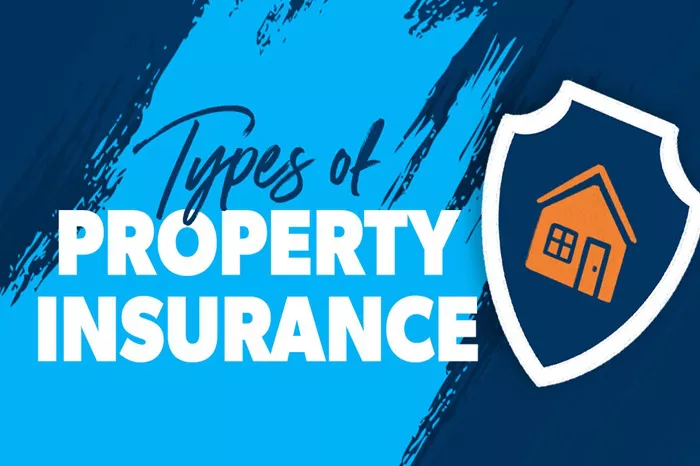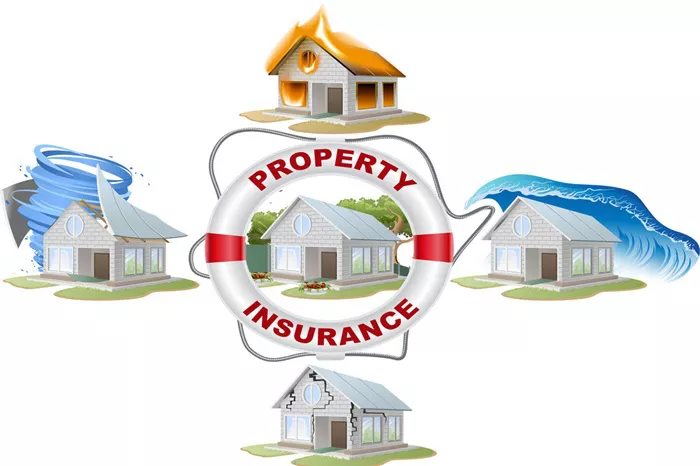Property insurance is a critical aspect of financial security, providing protection against various risks that can lead to significant financial loss. This article delves into the different types of property insurance available, helping property owners understand their options and make informed decisions.
The Importance of Property Insurance
Property insurance safeguards against damage or loss of physical property. It covers various types of assets, from residential homes to commercial properties. Understanding the types of property insurance available is essential for effective risk management.
Homeowners Insurance
Homeowners insurance is designed to protect residential properties. It typically covers the following:
1. Dwelling Coverage
This covers damage to the structure of your home from risks like fire, theft, and natural disasters.
2. Personal Property Coverage
This insures personal belongings within the home, such as furniture and electronics, against theft or damage.
3. Liability Protection
This protects the homeowner from legal claims due to injuries or damages occurring on their property.
4. Additional Living Expenses
If a home is uninhabitable due to damage, this coverage helps pay for temporary living arrangements.
Renters Insurance
Renters insurance provides coverage for individuals renting a home or apartment. Key components include:
1. Personal Property Coverage
Similar to homeowners insurance, this protects personal belongings against theft or damage.
2. Liability Coverage
Protects renters from legal claims if someone is injured in their rented space.
3. Additional Living Expenses
Covers costs for temporary housing if the rented property becomes unlivable.
Condo Insurance
Condo insurance is tailored for condominium owners, covering:
1. Interior Structure Coverage
Protects the interior structure and personal belongings from damage.
2. Liability Coverage
Similar to homeowners and renters insurance, it protects against legal claims.
3. Loss Assessment Coverage
Covers costs associated with damage assessments from the condo association.
Landlord Insurance
Landlord insurance is for property owners who rent out their properties. Coverage includes:
1. Property Coverage
Protects the physical structure and any personal property within it.
2. Liability Coverage
Protects against claims from tenants or visitors injured on the property.
3. Loss of Rental Income
Provides compensation for lost rental income due to property damage.
Commercial Property Insurance
Commercial property insurance is essential for businesses, covering:
1. Building Coverage
Protects the physical building and any attached structures.
2. Contents Coverage
Covers business personal property, including equipment and inventory.
See Also: What Is All Risk Property Insurance?
3. Business Interruption Insurance
Compensates for lost income if a business is unable to operate due to covered damage.
Specialized Property Insurance
Certain properties may require specialized coverage, including:
1. Flood Insurance
Essential for properties in flood-prone areas, this insurance covers water damage not typically included in standard policies.
2. Earthquake Insurance
Protects against damage from earthquakes, which may not be covered by standard property insurance.
3. Windstorm Insurance
Important for properties in hurricane-prone areas, this covers damage from high winds.
Conclusion
Understanding the different types of property insurance is crucial for property owners. Each type offers unique benefits tailored to specific needs and risks. By assessing individual circumstances and risks, property owners can choose the right insurance coverage to protect their assets effectively.
With property insurance, individuals and businesses can have peace of mind knowing they are safeguarded against potential financial loss. Whether you are a homeowner, renter, landlord, or business owner, investing in the right type of property insurance is a vital step in securing your financial future.
FAQs
1. What is property insurance?
Property insurance is a type of insurance policy that provides financial protection against risks associated with physical property. This includes coverage for damage or loss caused by various perils such as fire, theft, vandalism, and natural disasters like hurricanes and earthquakes. Property insurance can cover residential homes, rental properties, and commercial buildings, ensuring that property owners are protected from the financial burden of unexpected events. It typically includes several components, such as dwelling coverage, personal property coverage, liability protection, and additional living expenses, depending on the type of policy.
2. Do I really need property insurance?
Yes, property insurance is essential for protecting your financial investment in real estate and personal belongings. Without insurance, you could face significant out-of-pocket expenses in the event of damage or loss. For homeowners, having insurance is often a requirement by mortgage lenders to protect their investment. Even renters benefit from renters insurance, which safeguards personal property and provides liability coverage. Property insurance not only protects against loss but also provides peace of mind, knowing that you are financially prepared for unforeseen circumstances.
3. What factors influence property insurance premiums?
Several factors affect the cost of property insurance premiums, including:
Location: Properties in high-risk areas, such as those prone to flooding or earthquakes, generally have higher premiums.
Property Value: The higher the value of the property and its contents, the more expensive the insurance policy will be.
Coverage Amount: The more coverage you choose, the higher your premium will be. Opting for lower deductibles can also increase costs.
Claims History: If you have a history of filing claims, insurers may view you as a higher risk, leading to increased premiums.
Credit Score: Many insurers use credit scores as a factor in determining premiums; a higher score can lead to lower rates.
Home Features: Security systems, fire alarms, and other safety features can lower premiums, while older buildings or those with outdated wiring may increase costs.
4. What does homeowners insurance typically cover?
Homeowners insurance generally covers several key areas, including:
Dwelling Coverage: This protects the structure of your home, including walls, roof, and built-in appliances, against perils like fire and theft.
Personal Property Coverage: This covers personal belongings inside your home, such as furniture, electronics, and clothing, against damage or loss.
Liability Protection: This offers coverage in the event of lawsuits for injuries or damages occurring on your property, helping to cover legal fees and settlements.
Additional Living Expenses: If your home becomes uninhabitable due to a covered event, this coverage helps pay for temporary housing and related expenses.
It’s important to review the specifics of your policy, as coverage can vary significantly between insurers.






















